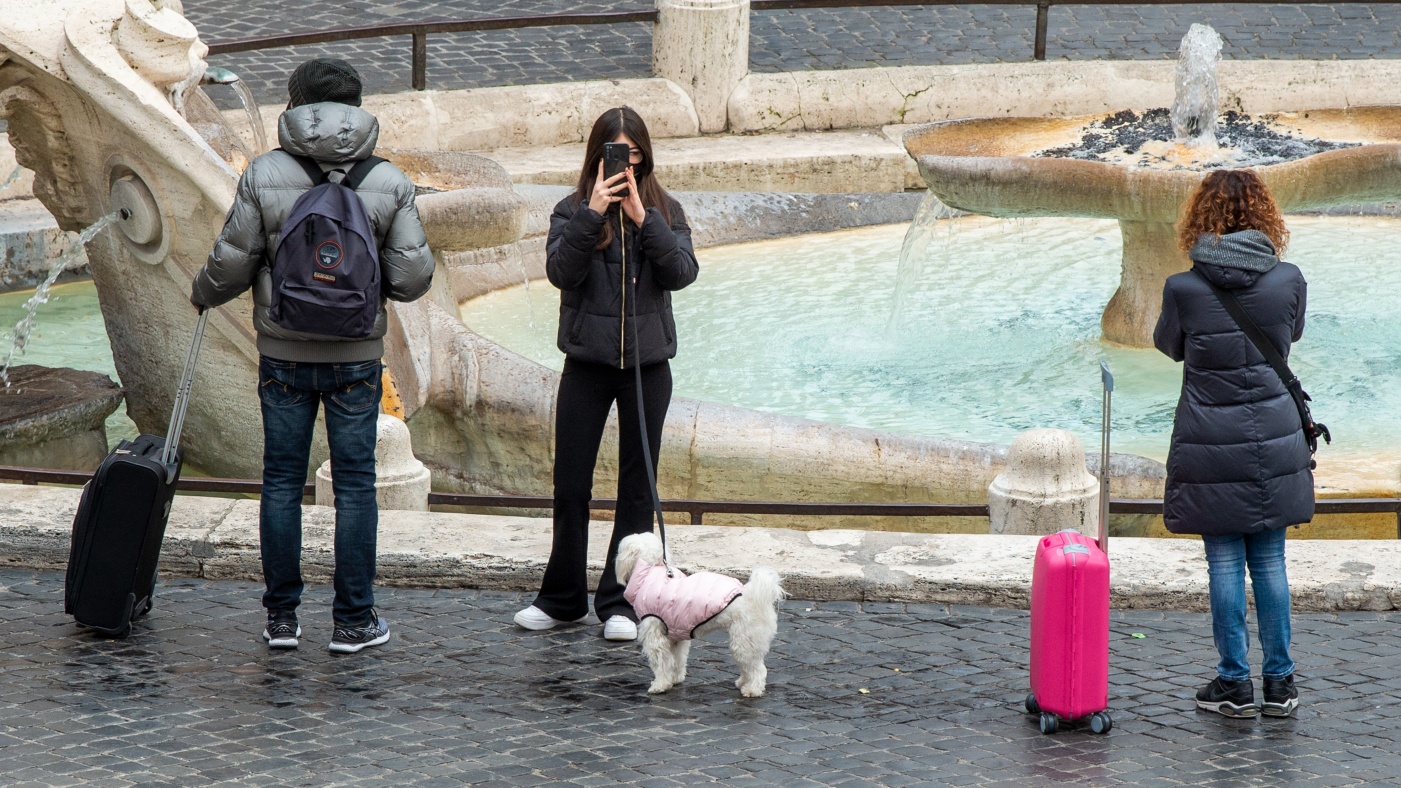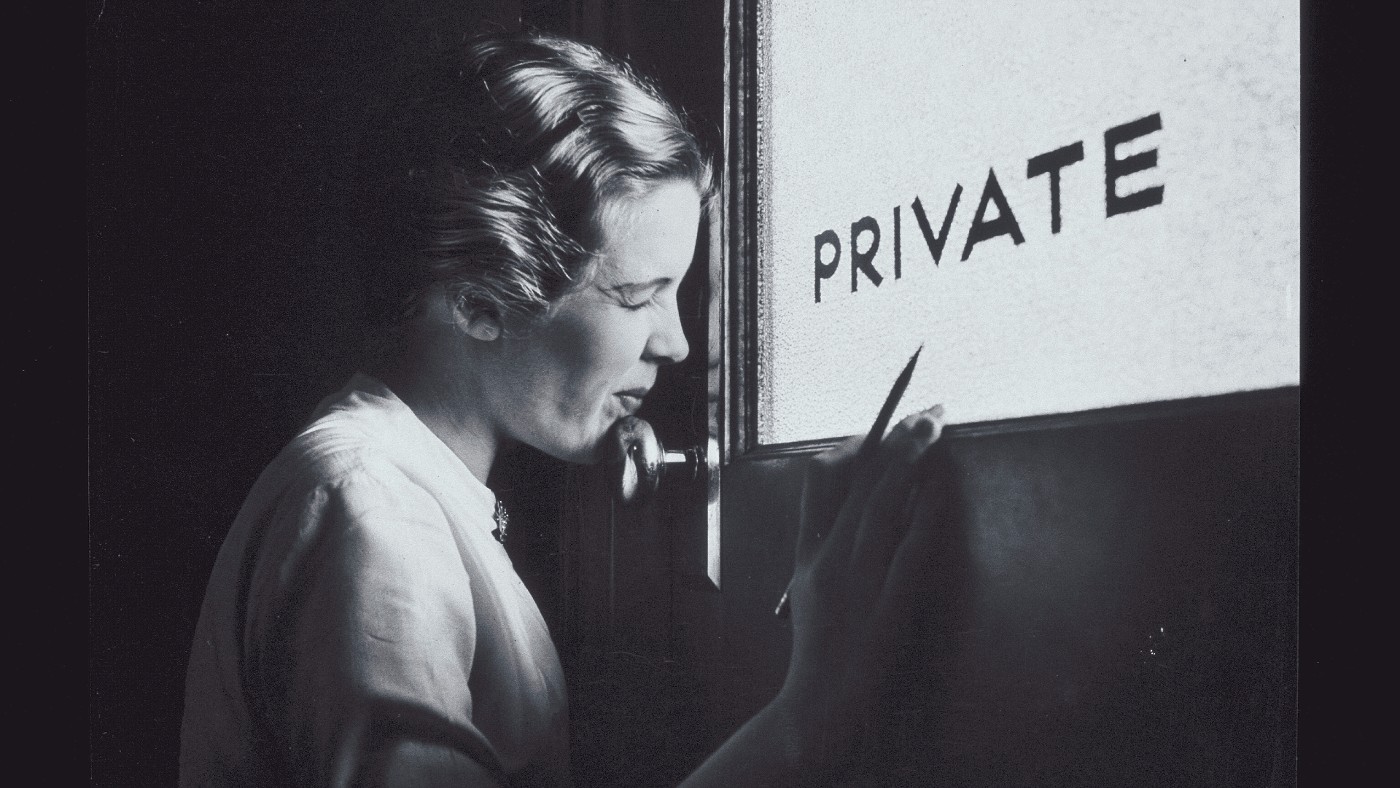The tourist tidal wave that’s flattening Europe’s cities
Historic cities are struggling to tackle a flood of short-term rental lets in their city centres

A free daily email with the biggest news stories of the day – and the best features from TheWeek.com
You are now subscribed
Your newsletter sign-up was successful
“Serene as a Tuscan village” is how the residents of Monti in central Rome, a charming quarter near the Colosseum, once described their neighbourhood. But that was 15 years ago, before the arrival of Airbnb, said Eric Reguly in The Globe and Mail (Toronto).
Today, with visitor numbers back to pre-pandemic levels, it’s a tourist hell. The short-term rental market – catnip to landlords – has pushed tens of thousands of locals out of the historic city centre, and the shops on which they relied for everyday needs have been replaced by chain stores, pubs and places peddling tourist junk. Rome is turning into an architectural theme park; and the residents have had enough. In Monti, someone has put up a sign that reads: “Why call it tourist season if we can’t shoot them?” Activists of a more practical bent are calling for a national law to limit the number of days that a flat can be used for holiday rentals: the limit in London is 90 days; in Paris, it’s 120; but in Rome, with its roughly 25,000 Airbnb listings, there’s no limit at all.
The desertification of the city centre is not just Rome’s problem, said Arcangelo Rociola in La Repubblica (Rome): all of Italy’s historic towns suffer from it. No wonder, when you look at the figures: between 2008, when Airbnb came to Italy, and today, annual tourist numbers have risen by more than 20 million. Belatedly, the government is now discussing plans to introduce a bill which would mandate a minimum stay of two nights. But meanwhile, the mayor of Florence, Dario Nardella, has taken matters into his own hands. On 1 June, he decreed that no further licences will be granted in the city for short-term rentals.
The Week
Escape your echo chamber. Get the facts behind the news, plus analysis from multiple perspectives.

Sign up for The Week's Free Newsletters
From our morning news briefing to a weekly Good News Newsletter, get the best of The Week delivered directly to your inbox.
From our morning news briefing to a weekly Good News Newsletter, get the best of The Week delivered directly to your inbox.
How naive, said the online news site Linkiesta: talk about tackling the symptoms instead of the cause. Platforms such as Airbnb represent an outlet for pent-up demand. Restrict supply and you’ll see rental prices shoot up, not down. Maybe so, said Emilio Cabrera in La Voz del Sur (Jerez), but something must be done, as this hollowing out of historic cities is a problem that won’t go away.
And it isn’t confined to Italy. See what’s happening in the Spanish city of Seville, where “six out of ten homes in the centre are registered for holiday lets”. It’s mayhem. “If blossom is Seville’s characteristic smell, the sound of suitcases wheeled over cobblestones has become its characteristic noise.” But thanks to the decree introduced by Andalusia’s regional government, things might improve: owners of tourist flats will have to install noise meters, and municipalities will be given the power to set limits on the number of homes rented out on platforms such as Airbnb.
They’ll have a fight on their hands, said Inma Bermejo in La Razon (Madrid). For millions of Spaniards, income from Airbnb is a lifesaver. In Spain, more than 15% of households (2.9 million) own a second property – one of the highest rates in the EU – and of those households, “more than 30% say that they’re hosting guests in order to make ends meet”. Madrid has just passed a Housing Law limiting the amount by which landlords can raise prices for long-term rents, so the attractions of short-term holiday rents, whether officially permitted or not, are only likely to increase. It’s much the same story in France, where the government has just ditched a bill to regulate furnished accommodation and diminish some of its tax advantages, said Le Figaro (Paris).
Airbnb critics attribute the cave-in to the shadowy influence of the US giant, but domestic pressure is pretty intense too. Many French families rely on Airbnb to cope with rising living costs; and it can be very profitable. “It pays three times more than the classic rental,” Carole, a Parisian who rents several Airbnbs in Clermont-Ferrand, told the paper. And though more and more municipalities are trying to stem the spread of Airbnb, they’re careful not to ban it. After all, tourist rentals fill city coffers. The Airbnb tidal wave may be checked, but it won’t be reversed.
A free daily email with the biggest news stories of the day – and the best features from TheWeek.com
-
 The environmental cost of GLP-1s
The environmental cost of GLP-1sThe explainer Producing the drugs is a dirty process
-
 Greenland’s capital becomes ground zero for the country’s diplomatic straits
Greenland’s capital becomes ground zero for the country’s diplomatic straitsIN THE SPOTLIGHT A flurry of new consular activity in Nuuk shows how important Greenland has become to Europeans’ anxiety about American imperialism
-
 ‘This is something that happens all too often’
‘This is something that happens all too often’Instant Opinion Opinion, comment and editorials of the day
-
 Bizarre pizza toppings horrify Italians
Bizarre pizza toppings horrify ItaliansTall Tales And other stories from the stranger side of life
-
 Being nosy 'helps you live longer'
Being nosy 'helps you live longer'Tall Tales And other stories from the stranger side of life
-
 Earring lost at sea returned to fisherman after 23 years
Earring lost at sea returned to fisherman after 23 yearsfeature Good news stories from the past seven days
-
 Bully XL dogs: should they be banned?
Bully XL dogs: should they be banned?Talking Point Goverment under pressure to prohibit breed blamed for series of fatal attacks
-
 The spiralling global rice crisis
The spiralling global rice crisisfeature India’s decision to ban exports is starting to have a domino effect around the world
-
 Netanyahu’s reforms: an existential threat to Israel?
Netanyahu’s reforms: an existential threat to Israel?feature The nation is divided over controversial move depriving Israel’s supreme court of the right to override government decisions
-
 A country still in crisis: Lebanon three years on from Beirut blast
A country still in crisis: Lebanon three years on from Beirut blastfeature Political, economic and criminal dramas are causing a damaging stalemate in the Middle East nation
-
 Farmer plants 1.2m sunflowers as present for his wife
Farmer plants 1.2m sunflowers as present for his wifefeature Good news stories from the past seven days